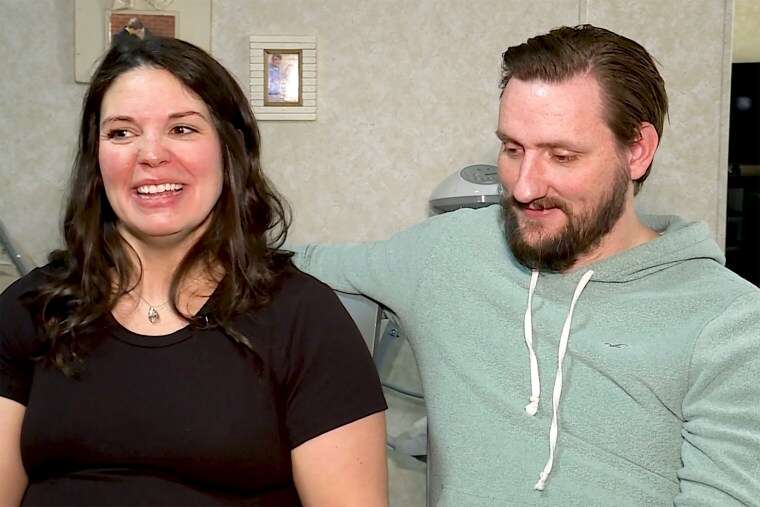An Alabama woman is expecting two babies from two technically separate pregnancies.
Kelsey Hatcher was born with two uteri, each with its own cervix — a condition known as uterine didelphys. She is expecting two baby girls, one in each uterus, with an official due date on Christmas Day, reported NBC affiliate WVTM 13.
When Hatcher’s first ultrasound appointment last spring revealed her condition, her husband, Caleb, almost didn’t believe her, she told WVTM 13.
“He said, ‘You’re lying.’ I said, ‘No, I’m not,’” said Hatcher, who already has three children, ages 7, 4, and 2. She said these new babies will be her last ones.

Only about 3 in 1,000 women are born with two uteri, but the chances of being pregnant in both uteri are at least one in a million, said Dr. Richard Davis, a specialist in obstetrics and gynecology at the University of Alabama Hospital. Davis is consulting Hatcher through her pregnancy and has assisted with most of her ultrasounds.
“I’ve delivered several women that have a double uterus and most of the time they have done well, but I’ve never delivered one with twins in each horn for sure,” Davis said.
The babies, which are growing healthily, come from two separate eggs and will not be identical, so Davis suggested the term “fraternal twins” might be a more accurate way to describe them.
Hatcher’s pregnancy is classified as high-risk because it will require more care providers and contingency plans. That includes the high chance that each uterus starts contractions at different times, meaning the sisters could be born hours or days apart.
Hatcher plans for a natural birth to lessen her recovery time, but there could be complications regardless of the method she chooses, Davis said.
“The C-section is a little more risky than usual because you have to make an incision in each uterus,” the doctor noted. “That’s two incisions and more blood loss.”
For a vaginal delivery, concerns would be around ensuring that the babies look safe during labor and have normal fetal heart rates, he said.
For now, Hatcher will need to get an ultrasound every week to monitor the condition of her babies.
